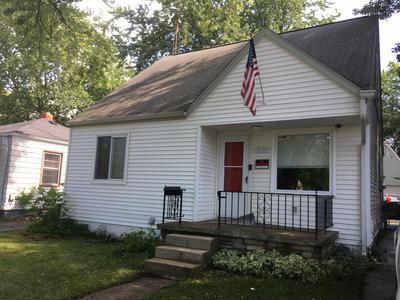Code enforcement entered home
by Ray
(Flint michigan)

Reviewed: June 12, 2024
Visitor Question: I live in Flint, Michigan. Code enforcement entered my home, threw back the door, then took pictures of my home to use as evidence. My home was vacant at the time.
They had no search warrant or permission to do this. My back yard has a privacy fence all around it.
Is this legal or am I protected by the Fourth Amendment?
Editors Reply: As to whether this was legal behavior, this depends on many factors, such as which specific codes have been adopted and modified by Flint, Michigan law, and ultimately case law at both the state and federal levels.
It also depends on what violation the city was expecting to find. Often the laws concerning potential condemnation of unsafe or unhealthy buildings are more permissive about inspector behavior than would be the case if the complaint about your house involved peeling paint, for example.
For those outside the U.S. who are wondering, the Fourth Amendment of the U.S. Constitution prohibits unreasonable search and seizure of private property by the government.
Rather than focusing on whether the code inspector's actions were illegal, it would be more helpful to you to focus on the condition of your home. Ask to see the inspector's report. If they are gathering "evidence," the city must have fairly serious violations that they are suspecting or pursuing.
Call the inspector at the beginning or end of the day. If the inspector himself or herself does not tell you much, ask for the name of the supervisor and call that person. You do have a right to know exactly what actions the city is considering. If you are told that the report isn't ready yet, ask for a date when it will be prepared.
Often a code violation letter will just state the violation and not give you much information or help about how to remedy the violation. Since you need to talk to the inspector and probably the supervisor about this, ask them for suggestions on the minimum you need to do to bring your home and property into "up to the code" status.
Also ask about potential sources of financial assistance if you feel you cannot afford to make the repairs that will be required. Sometimes the city or non-profits have grants or loans available.
When you receive the actual code violation report, you will be given a date by which the violations should be corrected. Take note of that, and make every effort to make at least some progress by that date.
If you end up with a summons to municipal court, be sure to go. We can't emphasize that enough. Our experience is that when code enforcement inspectors go overboard in their attempt to find and document code violations, often the municipal judge is sympathetic about that. But a sure way to make the municipal judge angry is to not show up to court.
So in short, our advice to you is to save your anger about the code inspector's behavior for your day in municipal court. That is most likely where you will find fair treatment.
In the meantime, get busy on fixing code violations, if there are any in your home. A judge will notice and appreciate any little bit of progress on that. Codes are written for your protection, and for the health and safety of current occupants, visitors, and neighbors. Yes, occasionally a particular provision of a code seems silly and even outrageous for a particular house, but as a general rule, codes help a city maintain its housing in safe condition. Code compliance certainly helps your property values too.
- A Good Community ›
- Visitor Questions ›
- Code Enforcement Questions
Join GOOD COMMUNITY PLUS, which provides you monthly with short features and tips about timely topics for neighborhoods, towns and cities, community organizations, and rural or small town environments. Unsubscribe any time. We expect to send just one more issue before we abandon this website and move to other projects. Sign up to see our final words of wisdom.